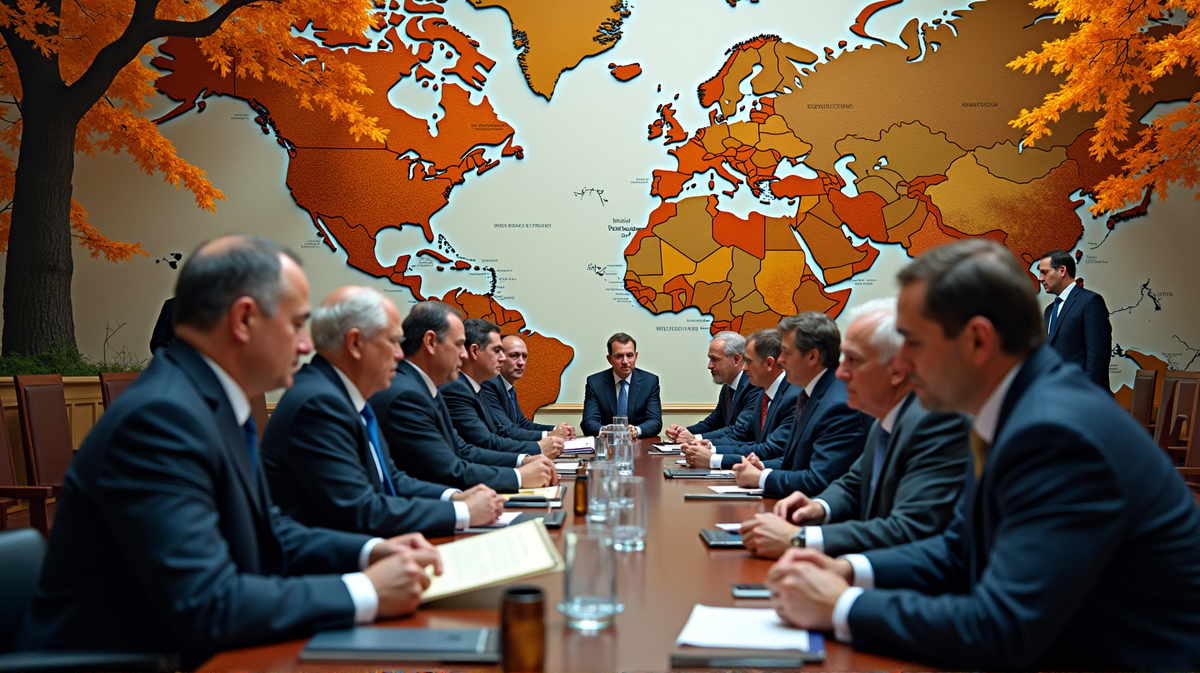EU's Complex Autumn: Navigating Diplomatic Tightropes and Political Intrigue
As diplomats return from break, the EU faces tough choices on Russian assets, Ukraine's accession, Moldova pathways, and Georgia's democracy struggle.

As summer draws to a close, the European Union stands on the precipice of a politically charged autumn. After a summer lull, the EU’s focus will shift to key issues that echo profoundly across the continent, shaping its diplomatic and political landscapes. According to Radio Free Europe/Radio Liberty, this autumn will test the EU’s ability to maintain unity while facing several pointed challenges.
The Great Russian Asset Dilemma
With over 200 billion euros of frozen Russian assets resting within EU borders, the debate on their future is heating up. These assets, ensnared in Europe’s sanctions web since the Ukraine invasion in 2022, hold immense strategic importance. The conversation is complex: Should these funds be seized to aid Ukraine directly, or could they be better reserved as leverage in negotiations? Amidst the clamor for immediate action, there is growing apprehension about the economic implications for the euro as a global currency.
Towards Decoupling: Moldova and Ukraine’s EU Journey
The EU candidacy of Moldova and Ukraine has been perpetually intertwined—a marriage of mutual interests. Yet, Hungarian resistance to Ukraine’s accession talks over minority rights has stalled progress. Moldova, facing a pivotal election, may find its path to EU membership disentangled from Ukraine, potentially altering the political tides in favor of pro-EU factions in Chisinau.
Georgia: Democracy’s Twilight?
Georgia’s democratic aspirations hang in the balance as it faces EU demands for profound legislative reforms. The looming threat of sanctions and suspension of visa liberalization shadows the political landscape. With local elections on the horizon, Georgia’s choices this autumn could reshape its future and its relationship with Europe.
A New Era of Border Control
On October 12, the EU’s much-anticipated Entry/Exit System (EES) will begin transforming its border management. This sophisticated system replaces manual passport stamps with a digital regime of recording biometric data. A seamless rollout promises to enhance security and pave the way for the European Travel Authorization System, poised to streamline visa-free travel.
The Resurgence of the Visegrad Four?
Amid political shifts, particularly in countries like the Czech Republic and Poland, the Visegrad Group—a coalition once static—may revive its influence. As some nations return to populist roots, the V4’s future role in shaping EU policy is uncertain but certainly noteworthy.
This autumn promises to be a period of significant diplomatic movements and potentially transformative political shifts for the EU. The decisions made in these coming months will reverberate across Europe, impacting not only foreign relations but the very fabric of the EU’s internal unity.





